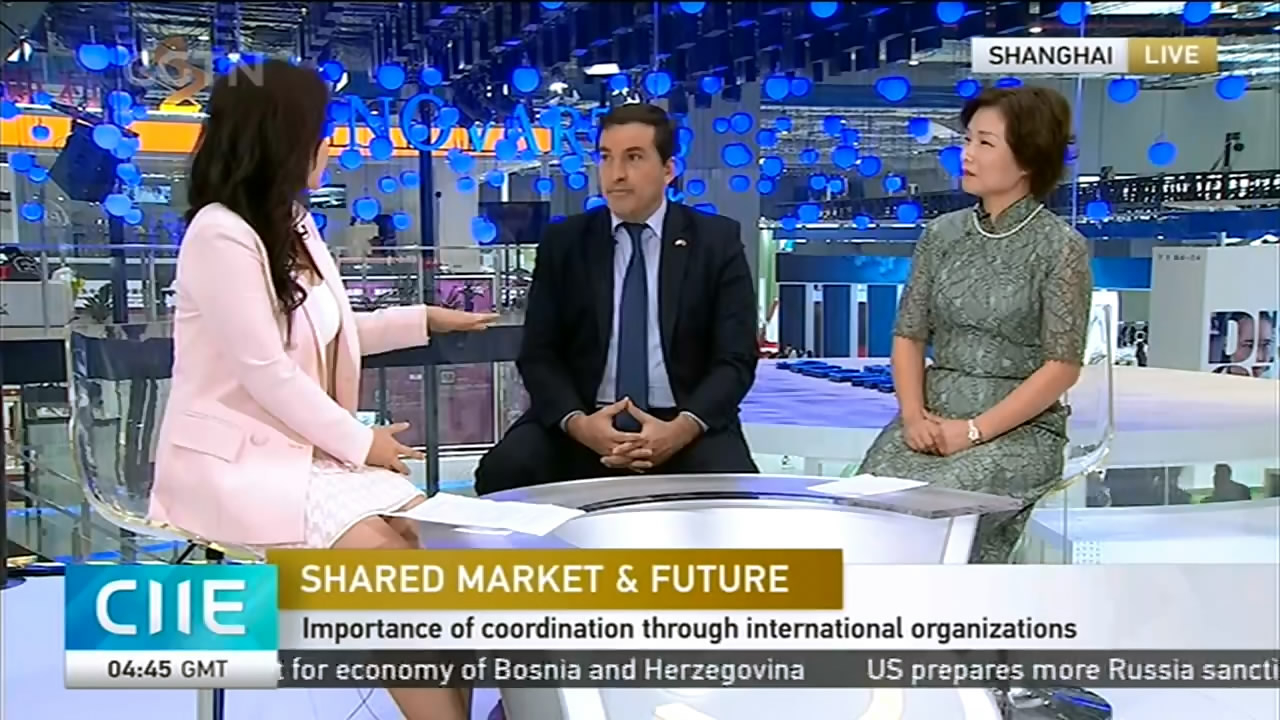
Business
17:04, 07-Nov-2018
Uruguay's ambassador eyes free trade far beyond a concept
Updated
16:54, 10-Nov-2018
By CGTN's Wang Yue
09:46

Free trade is more than a concept, it has real effect on the global economy, according to Fernando Lugris, Uruguay's ambassador to China.
China is Uruguay's largest trading partner. Data from China's top customs regulator General Administration of Customs (GAC) shows that trade volume between the two countries stood at 13.86 billion yuan (nearly two billion US dollars) in the first half of this year, up 15.4 percent year on year.
While this year is the 30th anniversary of Uruguay's diplomatic ties with China, the Latin American country hopes that through the China International Import Expo (CIIE), it can further deepen its cooperation on commerce and trade with China.
The famous Uruguay Round, which concluded with a series of multilateral agreements in 1994, addressed a number of issues that had never been discussed before in global trade negotiations. The ambassador told CGTN that the country has been consistent with its foreign policy.
"We consistently support free trade," he said, in the meantime mentioning that the country is promoting free trade negotiations on the global, regional and bilateral levels.

Fernando Lugris, Uruguay's ambassador to China (M), and Fu Xiaolan, Director of Technology and Management Centre for Development at the University of Oxford (R). /CGTN Photo
Fernando Lugris, Uruguay's ambassador to China (M), and Fu Xiaolan, Director of Technology and Management Centre for Development at the University of Oxford (R). /CGTN Photo
To facilitate free trade, Fu Xiaolan, Director of Technology and Management Centre for Development at the University of Oxford, called for high-level coordination through international organizations and more support for multilateralism.
"First is that we need high-level coordination among these international multilateral agreements, in terms of trade in goods, services and some special areas like environment, technology. So the high-level coordination through international organizations like WTO (World Trade Organization) could make sure the agreements are coherent and consistent. This is a very important step," she explained.
The director added that “all countries need to support multinationalism and stop behavior or action in terms of unilateralism. This is also very important.”

SITEMAP
Copyright © 2018 CGTN. Beijing ICP prepared NO.16065310-3
Copyright © 2018 CGTN. Beijing ICP prepared NO.16065310-3